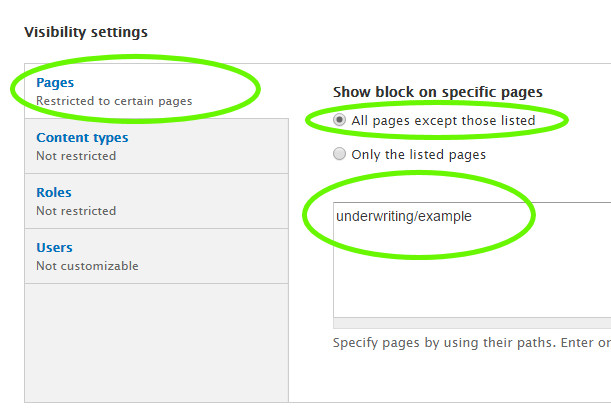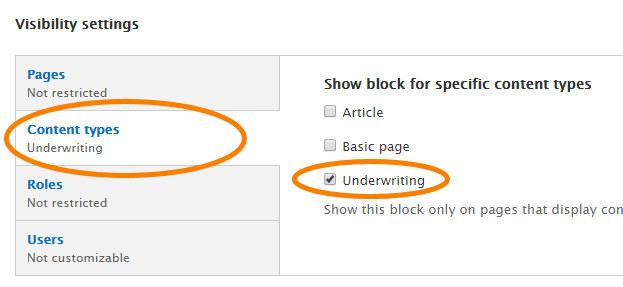Have a look at the Rules block visibility module. Here is a quote from its project page:
The Rules block visibility module allows Rules components to be used to control block visibility. This provides Drupal administrators and developers extreme flexibility in controlling when blocks should be displayed on their websites, in addition to the default visibility options provided by Drupal.
The general idea is that if you can do it with Rules, you can use it to control block visibility, so the possibilities are limitless.
Need to show a block only for users registered more than a month ago?
Perhaps you have a block that must be shown only between 8am-5pm on weekdays?
What about displaying or hiding a block based on current weather conditions?
All of this can be done by using Rules block visibility.
As per the "if you can do it with Rules, you can use it to control block visibility" above, you have the power of Rules available to implement all sorts of custom logic.
For an illustration of how to use this module, refer to my answer to "How to stop a Views block from displaying to admins, such as user/1?". It includes a Rules Component (in Rules export format), which you should replace by this variation of it to make it match your specific question):
{ "rules_block_visibility_show_on_selected_pages" : {
"LABEL" : "Show block on selected pages",
"PLUGIN" : "rule",
"OWNER" : "rules",
"REQUIRES" : [ "rules" ],
"USES VARIABLES" : {
"module" : { "label" : "Module", "type" : "text" },
"delta" : { "label" : "Delta", "type" : "text" },
"result" : { "label" : "Result", "type" : "boolean", "parameter" : false }
},
"IF" : [
{ "AND" : [
{ "text_matches" : {
"text" : [ "site:current-page:path" ],
"match" : "underwriting\/",
"operation" : "starts"
}
},
{ "NOT text_matches" : {
"text" : [ "site:current-page:path" ],
"match" : "\/example",
"operation" : "ends"
}
}
]
}
],
"DO" : [ { "data_set" : { "data" : [ "result" ], "value" : "1" } } ],
"PROVIDES VARIABLES" : [ "result" ]
}
}
Voilà ... Easy, no?
PS: no need for the (dangerous) PHP filter either (which is no longer in D8 core either ...).



